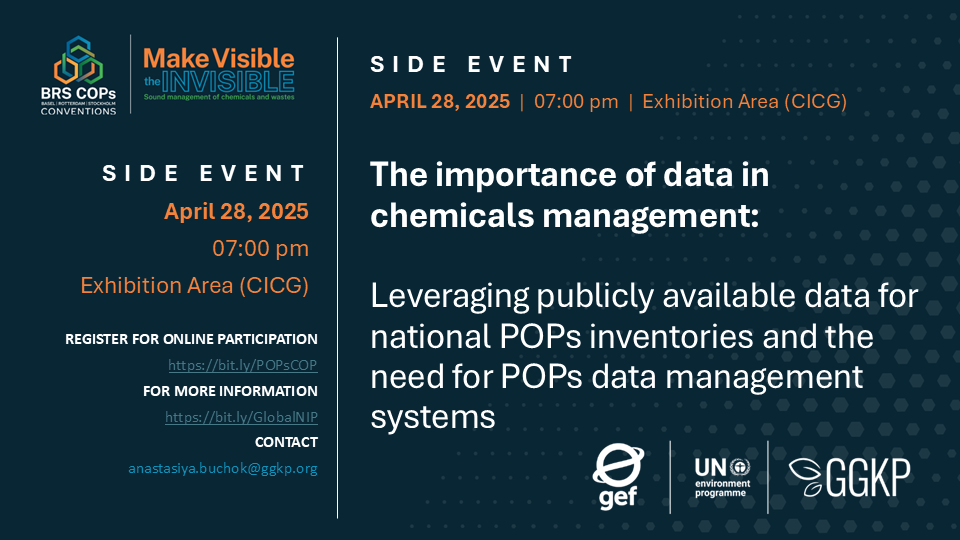The importance of data in chemicals management: Leveraging publicly available data for national POPs inventories and the need for POPs data management systems

Join us for this 2025 Meetings of the Conferences of the Parties to the Basel, Rotterdam and Stockholm Conventions (BRS COPs) side event to explore how publicly available data sources and data management systems can strengthen Persistent Organic Pollutants (POPs) inventories and inform National Implementation Plans (NIPs).
? The importance of data in chemicals management: Leveraging publicly available data for national POPs inventories and the need for POPs data management systems
? 28 April 2025 | ? 19:00–20:30 CEST
? Exhibition Area, CICG, Geneva, Switzerland
Highlights include:
? Ethiopia’s and Botwana`s perspective on POPs data gaps and approaches
? Why data gaps persist: The case for involving UN Comtrade data (Africa region)
? E-waste data set and POPs: Insights from the Global E-Waste Monitor
? PFAS contamination mapping through investigative journalism in Europe
? Monitoring UV-328 and POPs in plastics: Findings from NEERI, India
? Regional efforts towards better POPs data management from Czech Republic and the Caribbean
? Voice of the youth for better chemicals and waste management
Hear real experiences from Africa, Caribbean, South Asia, and Europe—with contributions from Botswana, Ethiopia, UNEP, UNITAR, Stockholm Convention Regional Centres (RECETOX, NEERI and BCRC Caribbean), international POPs experts, and Le Monde’s Forever Pollution Project.
For those attending the COP in person, please join us on Day 1 to explore what’s visible, what’s hidden, and what are the viable ways to deploy scalable data systems for POPs management.
? Can’t attend in person? Register to join us online:
? bit.ly/POPsCOP
? Organized by the Green Growth Knowledge Partnership (GGKP) under the GEF-funded, UNEP-led Global NIP Update Project (GEF ID 10785).